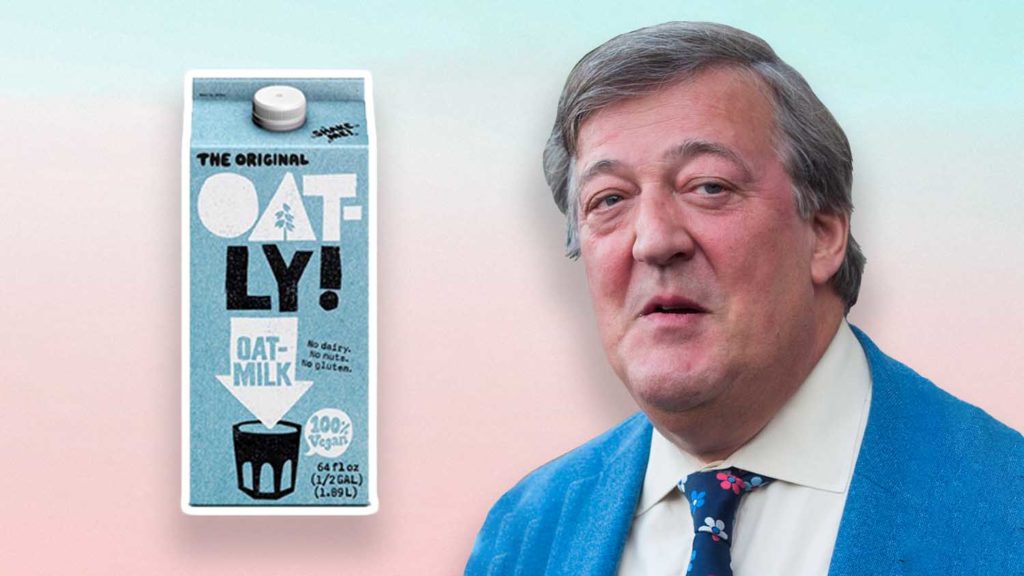Milk is milk, whether it comes from cows or coconuts, says Stephen Fry.
The Engish actor and comedian got into a Twitter battle over use of the term “milk” on plant-based dairy options.
The thread started after the vegetarian posted a photo of a latte he made with oat milk.
“Quite pleased with this one because, while far from perfect, it’s the best I’ve managed so far with oat milk,” he wrote.
But his comment earned pushback from at least one of his followers, who wrote that oat milk “isn’t milk.”
Fry responded: “and peanut butter isn’t butter, quince cheese isn’t cheese, cream of coconut isn’t cream.”
Fry then referenced ongoing efforts to prevent vegan products from using common terms like “cream” and “burgers”. “Try as dairy farmers might, history and the nature of language development will decide,” he wrote.
A Twitter follower furthered the conversation, pointing to hot dogs, which while pig-heavy contain no actual dogs and horseradish being absent of any actual horse.

Vegan Labeling Laws
Efforts to suppress labels on dairy-free and meat-free products have seen some success. In 2018, France moved forward with its ban on the use of terms like “sausage” and “burger” on meat made from plants. Violators of the rule will face up to a €300,000 fine.
In the U.S., the DAIRY Pride Act (Defending Against Imitations and Replacements of Yogurt, Milk, and Cheese) aims to prevent brands from using conventional dairy terms to label or market nondairy products.
The Plant Based Foods Association is taking steps to prevent the bill from passing.
“Companies selling dairy alternatives are using easy to understand, clear, descriptive and truthful language on labels,” PBFA’s executive director Michele Simon wrote in a recent letter to the subcommittee members reviewing the bill. “Our members and others in this category are using common English words that consumers understand: milk, cheese, yogurt and butter, with qualifers to distinguish them from their animal-derived alternatives. These terms are readily understood by consumers as representative of the products functionality, form and taste, not necessarily the origin of the primary ingredient. Qualifiers such as “non-dairy,” “dairy-free, ” “plant-based, ” and / or “vegan, ” along with the ingredient and nutrition facts panel, make the contents labels clear.”
Whether you call it milk or not, Fry’s oat latte skills seemed to be on point; they earned him a few barista-related job offers.



